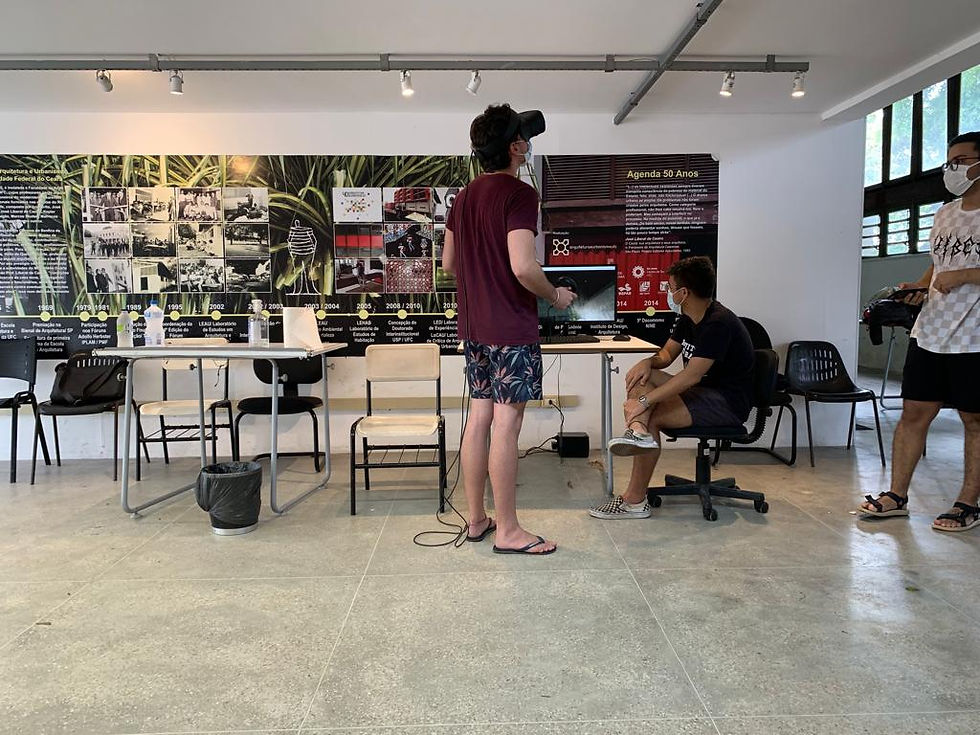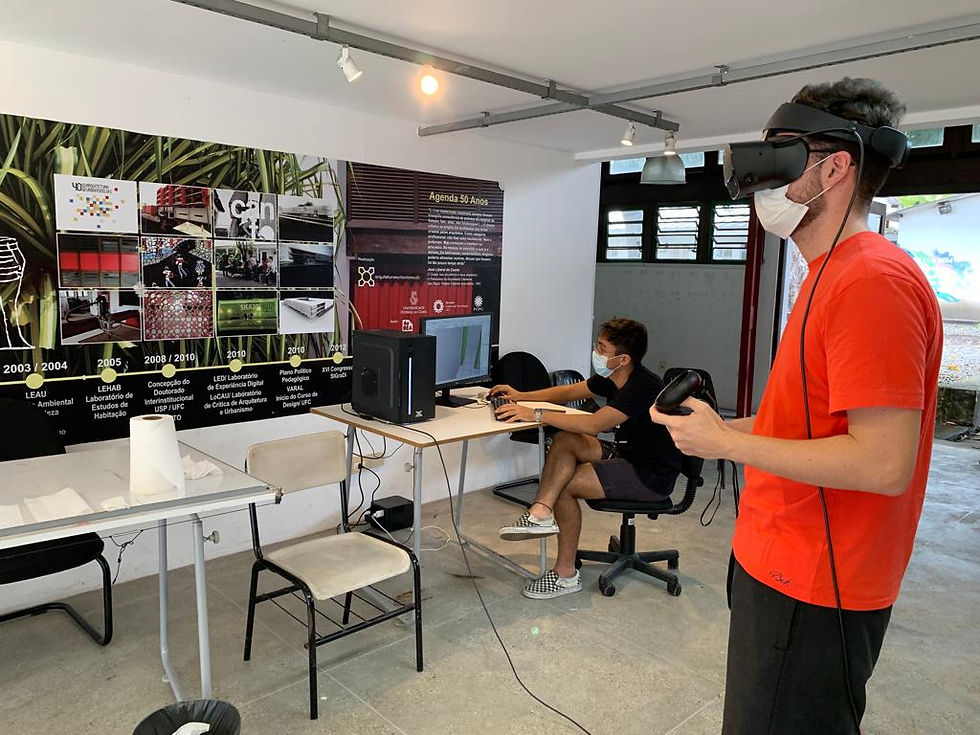LED partners with Unity and Meta to educate creatives in XR
- Eugenio Moreira
- Jan 26, 2023
- 3 min read
Updated: Jan 26, 2023
Immersive technologies have arisen as research themes in Architecture, Urbanism and Design. The set we now call Extended Reality (XR) - embracing the concepts of Augmented Reality (AR) and Virtual Reality (VR) - has allowed the emergence of new forms of representation and communication, which can be used to explore new forms of expression, representation and storytelling. The creation of responsive and interactive environments is among the possibilities, allowing the enhancement of the experience of the design professional and the user.
Understanding this trend and aiming to leverage this development, Unity Social Impact and Meta Immersive Learning have partnered to facilitate access to Virtual Reality and Augmented Reality equipment, as well as educational content and other resources to prepare educators to use these technologies. In 2022, the partnership created the Higher Ed XR Innovation Grant, a funding program that distributed $1M in funding to higher education institutions.
“At Unity, we believe the world is a better place with more creators in it. This partnership brings that belief to life by ensuring education is accessible to all, regardless of zip code. Every student should have the opportunity to achieve their full potential,” says Jessica Lindl, vice president of social impact at Unity. “As we all know, there has been a major shift not only in the global labor market but also in how we work. Therefore, it’s more important than ever to connect young people with the skills needed for future jobs, as these help chart a clear path from learning to earning opportunities.”
John Cantarella, vice president of community and impact partnerships at Meta, says, “As part of our commitment to support the next generation of creators through the Meta Immersive Learning initiative, we’re excited to partner with Unity, a trusted and innovative name in the XR industry. Together, we can empower aspiring creators to learn and grow in the metaverse – removing barriers to immersive technologies and unlocking new opportunities.”
The program had 276 project submissions from around the world, awarding a total of 8 institutions. A team of 60 judges from Unity and Meta came together to evaluate and select the proposals based on their focus on inclusion, social impact, viability, and innovation. Among these proposals, the Federal University of Ceará through LED - Digital Experience Lab was selected, giving rise to the research project Extended Realities in the Design Process.
This research aims to support the analysis of the insertion of AR and VR technologies in the design process in the various scales found in the design studio disciplines of Design, Architecture and Urbanism courses. Teaching practices will be fomented in several disciplines of the Department of Architecture and Urbanism and Design - DAUD, organized in two lines of action: Mixed Realities in the Design Process (which investigates the barriers and paths for inspiration and creativity) and Education and Open Space (which investigates the ubiquity of information). Also, in order to improve the learning curve, the project proposes the creation of a knowledge sharing and systematization platform, LEDed, which will be composed of pre-configured Unity templates associated with short video tutorials, within its own database.
The project foresees a staggering of teaching actions through the assembly of what we call XRKits, composed of a computer with video card and processor (for the creation of fluid experiences in real time) and a set of Meta Quest 2 glasses (allowing pairs of students to use them collaboratively with a teacher). The XRkits will be used in DAUD teaching activities, in combination with the aforementioned templates.
Finally, the funding will also cover the acquisition of other equipment, such as video cameras, microphones and teleprompters (to facilitate the capture of audiovisual material), as well as motiontrackers, kinects and high quality projectors (allowing the use in Spatial Augmented Reality experiments). Similarly, it is planned to hire researchers in Architecture and Urbanism, Design, and Computer Science.
For more information about the Higher Ed XR Innovation Grant, please access the links below:
To learn more about the research Extended Realities in the Design Process, go to the link:






Comments